I checked into my Amazon.com page this morning and saw a new review had been posted. That’s usually a good thing, but this reader gave the book one star.
The review was titled "horrible on EVERY level," and went on to describe me as "meaningless, a loser, whining, miserable, no wonder your life sucks, addicted to stupidity," and went on to characterize me as a "meatball" and say “if typing ‘Dear Diary, today I washed my underwear’ is what makes one a writer....you are qualified."
I typed in “Thank you for your review,” and left it at that.
A bad review just means you successfully identified someone who is NOT in your target market. It doesn’t mean your book is bad (just like a five-star review doesn’t mean it’s good,) just that someone REALLY disliked it. Some people love Shakespeare, some love I Hope they Serve Beer in Hell. Some people love the movie The Notebook, some the Hangover.
No one is going to love everything – that’s impossible (and would make the world damn boring.) That’s not your goal. If you try to please everyone you will be miserable. So your job as an author (other than writing the best, most honest book you can) is to find your specific target market and share your work with them as much as possible.
A lot of this advice applies to all artists, not just writers, but singers, actors, inventors, or anyone who is trying to do something different and creative in this world. Hopefully these thoughts put things in perspective so you won't be stunned by a bad review, just motivated to shine on!
10 reasons why authors should love one-star reviews:
1. They are right.
I know what you might be thinking: “Say what? No way! My work is better than that, they don’t know what they’re talking about, I’m right and they are wrong!”
A review is 100% THEIR forum to express whatever opinion they wish, it belongs wholly to the reader. You, the author, had 250 pages to express your view of the world, so now they get to cram their whole existence into 200 words, reflected off your work, so they are never wrong. Their opinion might be short-sighted, emotional, incomplete, or a little unfair, but that’s cool. It’s their time to talk, so I just need to shut the hell up and respect that.
2. They may be too close.
When you are a new nonfiction writer and your book hasn’t spread to that 2nd and 3rd level of awareness among people you don’t know, some of your initial reviews will be from people in the book (and don’t like their portrayal,) someone who has a bee in their bonnet about the subject matter, someone who thinks they can do it better/are smarter, someone who is off their meds, someone who hasn’t read the whole book (as clearly, this reviewer didn’t get past the second chapter) or a competing writer trying to slam your book to promote their own. They are way too close to the whole thing for you to consider their words impartial.
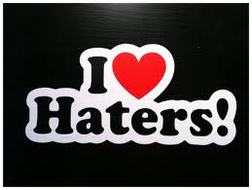
Sadly, the internet has become a cesspool of angry and desperate people expressing their darkest thoughts, hiding behind the mask of anonymity. When someone feels sad, alone, angry, or fearful, they lash out any way they can, and that is often with homophobic, racist, or hateful comments on the internet. They still probably didn’t like your book, but the hurtful, attacking review probably had more to do with their life than it did your book. Let's just give them a hug, not take it personal.
4. At least you’re not boring.
Give me one-star reviews all day long, but just PLEASE don’t give me a two or three-star review – that’s just blahhhhhh. I said as much in the introduction to South of Normal, that my goal with the book was to make people think a little bit and feel something. A one-star review just shows that the book stirred their passion and challenged their belief system, but at least it wasn’t viewed as boring – the ultimate sin.
5. Crazy loses credibility.
The more crazed and aggressive the reviewer sounds, the more they lose credibility with anyone who may be reading it. Their own words will expose them for who they are, not who YOU are. When responding to a bad review, ALWAYS be nice, polite, and respectful. NEVER debate them. Agree with them, thank them, and have fun with it.
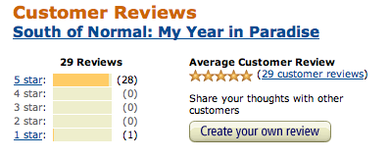
Whenever you open up something to mass opinion, their will be outliers, people who go way off the deep end, in either direction. For instance, South of Normal now has 28 5-star reviews (to be fair, a lot from friends, but a significant portion from people who I don’t know at all) and a single 1-star review. That will speak for itself. I’m not saying this to defend the book or claim it’s something special, but to show that their will be outliers no matter what statistic or ranking you’re looking at, and the truth probably lies somewhere in the middle.
7. It’s not going to affect sales either way.
You won’t lose significant sales with a one-star review, nor will people throw money at you because you have a few good reviews. Selling books is about finding your target market, those who want or need your content, and then consistently (but tastefully) introducing the subject matter to them so you may share an experience, and build loyalty. So one little blip on the radar isn’t going to sabatoge that process. In fact, you might even attract a few new readers based on the bad review. My friend Chris said it best when I shared this review on Facebook: “I’d buy the book just based on their bad one-star review!”
8. Everyone gets bad reviews.
This is amazing, but even the great authors classic authors received one-star and negative reviews. I did a quick search on Amazon and Romeo and Juliet has 22 1-star reviews out of 267 total, or an astounding 8.2%! The Catcher in the Rye (one of my all time favorites,) 344 out of 3,341, or about 10%! How about the mega-selling 50 Shades of Gray? It has over 27% one-star reviews!
A long time ago I gave some advice to my dear friend ML, who puts herself “out there” tirelessly to help others become happier and healthier. One time it backfired and she received some hurtful comments from someone, and came to me, upset. I gave her the advice “Congrats. You know you’re breaking through and doing your job well when you start getting haters.”
10. Who cares?
I mean, really…does it matter? Of course it hurts, it stings, it sucks, but will it change anything? No. They can not ruin the experience for you – only YOU can ruin the experience for you, so don’t allow that to happen. When you zoom out to a year from now, or even a month from now, you probably won’t even remember the incident, or just laugh at it, so who gives a shit? Focus on the good things you are doing and the wonderful people who have given you good, honest (though no always perfect) feedback.
Negativity goes BOOM! but quickly fades, while positivity echoes forever.
***
Thanks for your time, your reviews, and have an amazing day!
Norm :-)

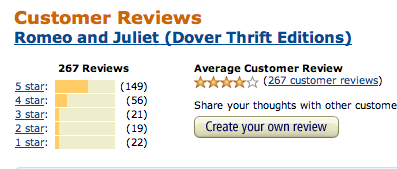
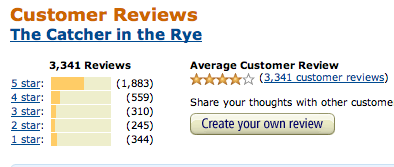
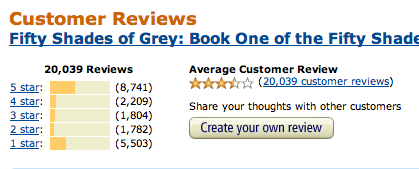
 RSS Feed
RSS Feed